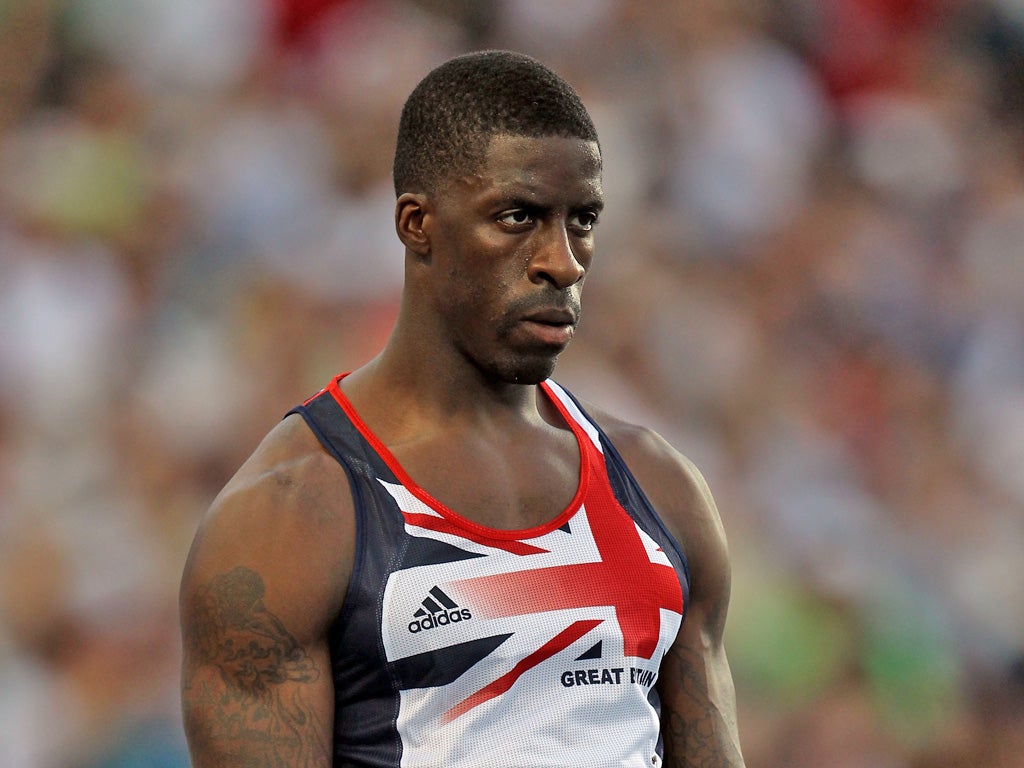CAS overturn British lifetime Olympic ban for drug cheats

Your support helps us to tell the story
From reproductive rights to climate change to Big Tech, The Independent is on the ground when the story is developing. Whether it's investigating the financials of Elon Musk's pro-Trump PAC or producing our latest documentary, 'The A Word', which shines a light on the American women fighting for reproductive rights, we know how important it is to parse out the facts from the messaging.
At such a critical moment in US history, we need reporters on the ground. Your donation allows us to keep sending journalists to speak to both sides of the story.
The Independent is trusted by Americans across the entire political spectrum. And unlike many other quality news outlets, we choose not to lock Americans out of our reporting and analysis with paywalls. We believe quality journalism should be available to everyone, paid for by those who can afford it.
Your support makes all the difference.The British Olympic Association's lifetime ban for drugs cheats has been formally declared unenforceable.
The Court of Arbitration for Sport (CAS) have issued a formal ruling that the BOA's by-law does not comply with the world anti-doping code.
The decision will allow sprinter Dwain Chambers and cyclist David Millar to be selected by Team GB for the London 2012 Games.
CAS said in a statement: "The by-law is a doping sanction and is therefore not in compliance with the WADA code. The CAS confirms the view of the WADA foundation board as indicated in its decision.
"Therefore, the appeal of BOA is rejected, and the decision of the WADA foundation board is confirmed."
The BOA have also been ordered by CAS to "pay all of the costs of the arbitration" - the organisation has already incurred substantial legal costs in hiring top barrister Lord David Pannick to represent them, albeit at reduced rates.
Hugh Robertson, sports and Olympics minister, expressed his disappointment at the outcome, and called for tougher sanctions for doping offences generally.
Robertson said: "I supported the BOA's position, as our national Olympic committee, in having the autonomy to set its own eligibility criteria for Team GB athletes.
"I accept this ruling from the Court of Arbitration for Sport but it is very disappointing.
"Moving forward, I fully endorse UK Anti-Doping's first submission to WADA as part of its review of the World Anti-Doping Code. I want the code to be further strengthened and I would particularly like to see tougher sanctions for proven drug cheats.
"The UK takes its responsibilities in the fight against doping in sport seriously. As we host the Olympic and Paralympic Games this year, we are promoting this message through the international 'Win Clean' campaign."
UK Athletics confirmed that any athletes such as Chambers who had been affected by the lifetime ban would now be eligible for selection.
A statement said: "UK Athletics has always supported the BOA by-law but welcomes the clarity the CAS decision brings to this issue.
"Athletes affected by the ruling are now eligible for the team, in both individual and relay events, and will be subject to the same selection criteria and process as every other British athlete."
Millar is likely to be part of the Olympic cycling team in London but British Cycling refused to speculate on that possibility.
A spokesperson said: "Our team for the Games is being selected in June and across all disciplines we'll pick the team based on which riders are fit and available, and who we believe have the best chance to deliver medals.
"Ahead of that we won't be speculating on who may or may not be selected."
BOA chairman Lord Moynihan described the outcome as a "hollow victory for WADA" and said they would be pushing for tougher sanctions for doping offences in the global code.
Moynihan also confirmed that Chambers and Millar are now eligible to be selected by their sports, and would be treated the same as all the other Team GB members if selected.
The financial burden could have been worse for his organisation - WADA had asked CAS for the BOA to pay their costs, claiming those costs "have been unnecessarily increased by the voluminous and largely irrelevant submissions and evidence submitted by the BOA on this appeal".
The CAS judgment also made clear they were not opposed to the BOA's ban, merely that as signatories to WADA's global anti-doping code the current system would not allow them to operate such a sanction.
CAS said the BOA bylaw was similar to the IOC's Osaka rule, overturned in October, which had said serious drugs cheats had to miss the next Olympics irrespective of whether their ban had expired.
WADA president John Fahey welcomed the ruling but blasted the BOA for "the many hysterical and inaccurate public statements" from the organisation during the case.
Fahey said: "The decision totally rejects the BOA appeal and upholds the WADA foundation board's declaration of non-compliance.
"The WADA decision was taken only after the full deliberation and consideration of independent legal advice and WADA regrets the many hysterical and inaccurate public statements from the BOA in the course of challenging the WADA decision.
"WADA has spent the last decade harmonising the fight against doping in sport across the world by creating one set of rules in consultation and in accordance with the wishes of all its stakeholders, both sport and government.
"In order to achieve this harmonisation, the rules have had to be proportionate and respectful of the rights of individuals within the framework of international law. They are not based on emotive arguments or the wishes of any one signatory or individual.
"As with all signatories, the BOA has the right to make submissions to amend the code through the code review process that is currently ongoing."
PA
Join our commenting forum
Join thought-provoking conversations, follow other Independent readers and see their replies
Comments